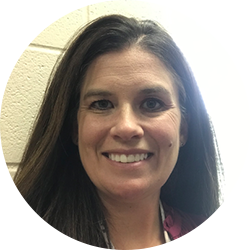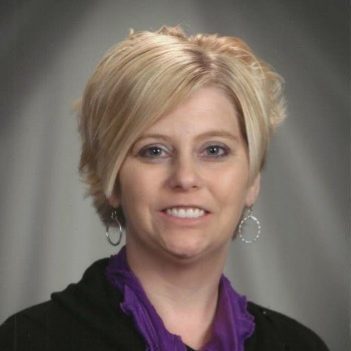Career Outlook
High ability educators frequently work with other classroom teachers to develop assignments for advanced students in regular classrooms. High ability teachers must strive to create a learning environment that is academically challenging for advanced students while remaining appropriate to students’ behavioral development. Because of the special needs of their students, gifted and talented teachers may meet more frequently with parents and administrative teams to measure student progress and achievement as part of each student’s individual talent development plan.
Job Titles
- Gifted Education Specialist
- High Ability Educators
- Gifted Teacher
- Master Teacher
- Talented and Gifted (TAG) Teacher
- Gifted Resource Specialist
- Children Talent Developer
- Gifted Educator
- Talented and Gifted Educator
Courses
Students spend an average of 15 hours a week on homework. All courses are 100% online and 8 weeks long.
12 Credit Hours of Coursework
EDPS 54000: Gifted, Creative, and Talented Children
This course is an introduction to intellectual, social, and emotional characteristics of gifted youth and philosophies of gifted education. Multi-talent conceptions of giftedness, including intellectual, academic, creative, artistic, and leadership are addressed. Criteria for selecting instructional materials and methods are discussed, including the design of learning experiences for gifted, creative, and talented youth.
EDPS 54200: Curriculum and Program Development in Gifted Education
This course introduces curriculum development and program design for meeting the needs of gifted, creative, and talented students. Students will be exposed to established program and curriculum models, as well as the nuts and bolts of developing curricular plans, materials, and specialized programs that support the advanced learning needs of gifted students.
Prerequisite: EDPS 54000 and EDPS 54500
EDPS 54500: Social and Affective Development of Gifted Children
This course focuses on the social and emotional development of gifted, creative and talented students. An overview of the characteristics and needs of gifted subpopulations, diversity issues, and family/parenting concerns is provided, along with an introduction to current educational approaches and counseling interventions.
Prerequisite: EDPS 54000
EDPS 69500: Practicum in Gifted Education
The practicum in gifted education is offered through an asynchronous distance learning independent study format in order to facilitate individualization of assignments and relevance to students’ instructional settings. Students complete a variety of structured, self-directed activities that require students to develop more advanced skills and knowledge for supporting gifted, creative, and talented students. The practicum experience develops reflective practitioners who set goals for professional growth, evaluate their progress toward those goals, and continuously improve their ability to provide talent development opportunities to their students. This course requires students to work with high-ability children in an educational setting.
Pre-requisites: EDPS 54000, EDPS 54500, and EDPS 54200
Cost
The High Ability Licensure Program is affordable and competitive in cost.
|
In-State |
Out-of-State |
| Total Cost Per Credit |
$450 |
$580 |
| Credit Hours |
12 |
12 |
| Total Costs |
$5,400 |
$6,960 |
*Tuition and fees are charges on a per credit hour basis and are subject to annual increase. Annual increases may change the total program costs.
*Note: Purdue faculty and staff fee remissions may not be applied to this program.
*International fee may be applicable
*Textbooks and course materials are not included
**The cost of attending Purdue varies depending on where you choose to live, enrollment in a specific program or college, food and travel expenses, and other variables. The Office of the Bursar website shows estimated costs for the current aid year for students by semester and academic year. These amounts are used in determining a student’s estimated eligibility for financial aid. You can also use our tuition calculator to estimate tuition costs.
Admissions
The program offers rolling admissions admitting new students in fall, spring, and summer.
Program deadlines
| Semester |
TREC Request Deadline |
Completed Application Deadline |
| Fall |
July 15 |
August 1 |
| Spring |
December 1 |
December 15 |
| Summer |
May 1 |
May 15 |
Admissions requirements
Certified Indiana educators who are admitted to this program are eligible for High Ability Licensure through the Indiana Department of Education (IDOE) upon successful completion of the program. If you are an out-of-state applicant or interested in teaching outside of Indiana, please contact Purdue’s Office of Teacher Education and Licensure at licensure@purdue.edu before submitting an application.
Applicants will need to submit the following with the graduate application:
- An Indiana professional educator’s instructional license is required to apply for the license addition in High Ability. A current license may be uploaded with the graduate application as a Miscellaneous Supporting Document.
- Official transcripts
- Personal History Statement – This may include relevant details on community service, leadership roles, participation in diverse teams, and significant barriers that you overcame to attend graduate school.
- Academic Statement of Purpose – This is an opportunity for you to share information that will help reviewers understand your academic interests and objectives, assess your academic background, preparation, and training, and determine if you are a good match for the program to which you are applying.
- English proficiency for international applicants
- No Application fee
Along with the graduate application, applicants must also submit a Transcript Evaluation and Credential Review (TECR) request. The evaluation can take 4 – 6 weeks to be completed, and the cost is $35 (non-refundable). The TECR must be requested and all required materials submitted by the deadlines listed above. The completed TECR letter will be emailed to the applicant and automatically uploaded with the graduate application.
For more information please see Purdue’s full application instructions and the Admissions Application Checklist
This program is subject to our Licensure Disclosure
The U.S. Department of Education requires institutions to publicly disclose to prospective and currently enrolled students whether certain programs meet the education requirements for licensure or certification in the state or territory in which they reside. “Programs Leading to Professional Licensure” is defined as programs represented to prepare students for an occupation for which, at completion of the program, a local, state or federal license, or nongovernmental certification is required (i) as a precondition for employment, (ii) to perform certain functions, or (iii) to meet additional conditions that are generally needed to secure employment.
The Purdue University Teacher Education Program is nationally accredited by the Council for the Accreditation of Educator Preparation (CAEP) and the State of Indiana. However, not all undergraduate and graduate programs lead to an educator licensure in the State of Indiana. If your Teacher Education program includes field experience(s) and a student teaching or internship component, it may lead to an educator license in the State of Indiana, if you meet the licensure requirements. Contact your academic/faculty advisor and/or the Office of Teacher and Licensure at licensure@purdue.edu to verify your program enrollment and whether or not it leads to a license in the State of Indiana.
The State of Indiana has reciprocity agreements with other states, the District of Columbia, and territories. For licensing information contact information for individual state departments of education or visit the National Association of State Directors of Teacher Education and Certification (NASDTEC) or email a Purdue University licensing officer/advisor at licensure@purdue.edu.
Visit this page to view the Licensure Program Agreement
Testimonials
The program at Purdue challenged the misconceptions I had toward gifted learners and allowed me to learn about this intriguing group of learners. I was able to understand the characteristics of each students and how to differentiate instruction to meet their needs academically. I was able to learn strategies and techniques to put to use in my classroom to create valuable learning opportunities for these students and push them to reach their potential.
MEGAN ENGELBERTH
7th Grade English Teacher
Whitley County Consolidated Schools
I enjoyed the program and challenges it presented. The only drawback I perceived was the amount of time spent on identification. I think this should be directed to general education teachers and administrators. I am already in a gifted classroom, so students are already identified. It makes me wonder how many fall through cracks because other teachers don’t know how/unwilling to properly help high achieving students.
DAVID SMYTH
5th Grade Teacher
Avon Community School Corporation
I have learned much about gifted students this year in the GCT Program. I have learned things I otherwise would not have known, had it not been for this GCT Program. It seems basic now. But I had never heard of twice-exceptional students, specific SEL curriculum for gifted students, nor the mal effects of not challenging students with gifts and talents. To say the least, I learned a great deal of valuable education about GT students.
TERESA PAUL
First Grade Teacher
MSD Wayne
The High Ability Licensure program from Purdue gave me the understanding to develop a way to reach students with high ability in more than the standard differentiation that happens in the classroom. I now know, with greater emphasis, the need to build relationships with these students and their families and to provide students with a safe community in which to thrive. Even as an online course, I was able to connect with my professors and peers daily, receive feedback in a timely manner, and have my questions answered quickly. Thank you for the experience!
MELVA A TRIPLET
Teacher
Pleasant Hill Elementary School
Program Faculty
These educational studies scholars lead the Gifted Education Research and Resource Institute (GER2I). GER2I is an innovative center dedicated to the discovery, study, and development of human potential. Our faculty are internationally recognized and have the ability to work personally with students to individualize their plan of study to meet personal career interests and goals. These faculty will oversee the intensive coursework required.
Frequently Asked Questions
- How many credit hours to receive the add on license in High Ability?
12 credit hours
- Is the High Ability program for an initial license, or an addition to a license?
The High Ability Licensure program is a license addition program. You must have an existing Indiana professional educator’s instructional license to apply for the licensure addition.
- How long are the courses?
8 weeks
- How much time should I allow for doing homework and completing assignments?
Plan on devoting 10–15 hours a week on coursework, depending on the course requirements that week and your study habits.
- How do I get my license to teach gifted?
A professional educator’s instructional license is needed to apply for the license addition in High Ability. A transcript evaluation and credential review must be requested to start the process.



